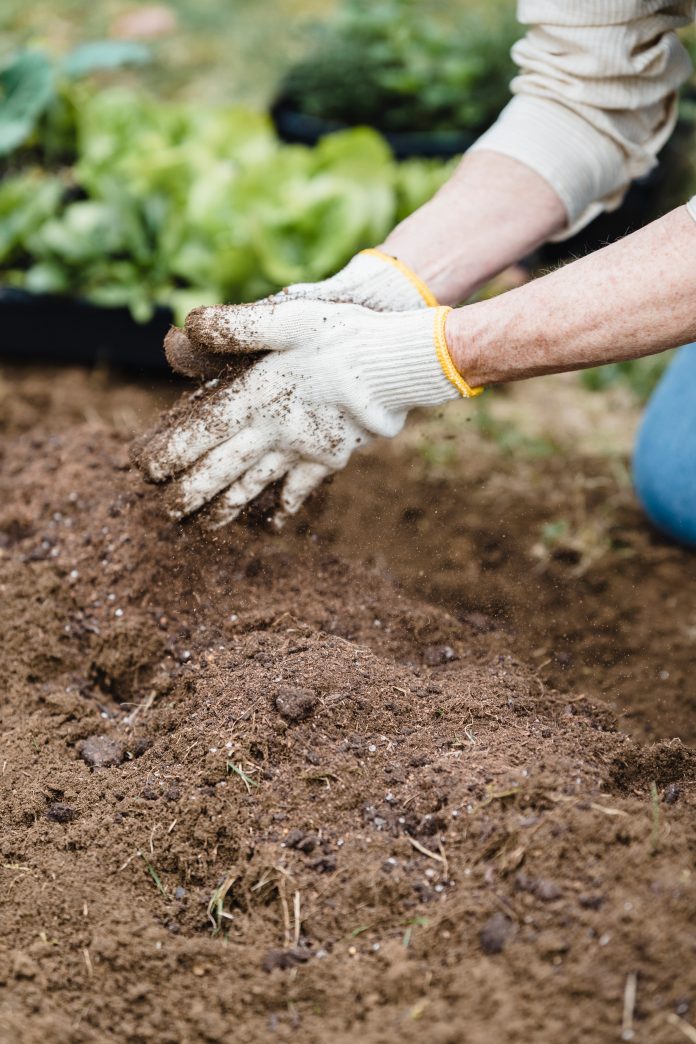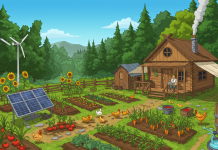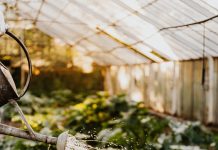As a homesteader or farmer, you know that healthy plants start with healthy soil. But what’s the right mix of nutrients to grow healthy plants?
In this blog post, we’ll explore the different types of nutrients your plants need and how to create a healthy balance in your soil. By following these tips, you can ensure that your plants have everything they need to thrive!
Soil Nutrients and Why They Are Important for Plant Growth
Gardening is a popular activity, and having healthy plants is essential to any garden. This all begins with having healthy soil full of nutrients to grow herbs and flowers.
Soil acts as an anchor that helps hold the plant in place while also providing essential nutrients to ensure the plant’s growth. These needed nutrients are often lacking in topsoil due to its initial separation from the earth. You can learn more about plant care at sites like sungrove.com
Adding fertilizers can help replenish these crucial elements, giving plants what they need to thrive. With healthy soil comes healthier plants, making gardening more rewarding and successful on every gardening journey!
Which Are The Different Types of Nutrients your Plants Need
Every living organism needs certain nutrients to survive, and plants are no exception. To grow and maintain healthy structures, plants need adequate quantities of three essential nutrients: nitrogen, phosphorus, and potassium.
Nitrogen is crucial for growth and helps create proteins and chlorophyll in plants; without it, the plant would be unhealthy or even starve to death. Phosphorus is important for root growth as well as photosynthesis; it also helps transfer energy throughout the plant.
Lastly, potassium regulates water balance and helps strengthen cell walls. In addition to these nutrient basics, plants also require other elements not found in larger amounts such as carbon, oxygen, hydrogen, calcium, magnesium, sulfur, and trace elements like iron or zinc.
Without an adequate supply of all of these components combined a plant will suffer from malnourishment with poor quality leaves and weakened stems that are more prone to disease and infestation – practically any issue that hinders general health.
How to Create a Nutrient-Rich Soil Mix for Your Plants
Preparing the right soil mix for your plants is essential to ensure lush and healthy growth. To create a nutrient-rich mix, you’ll need equal parts of compost, potting soil, and an aerating agent such as pea gravel or coarse sand.
Additionally, you should add in some aged manure if possible to give your plants an added boost of nitrogen-rich organic matter. Mix the ingredients together in a wheelbarrow or bucket until everything is distributed evenly and all the lumps have been broken up.
Once your nutrient-rich soil mix has been prepared, it can be used to fill pots for indoor plants, raised beds for vegetables, and any other garden areas that need replenishing with good-quality soil.
Tips on How to Fertilize your Plants Using Natural Ingredients
Fertilizing your plants with natural ingredients is an eco-friendly and cost-effective way to grow healthy, vibrant flowers and vegetables.
To start, you can use a combination of nitrogen-rich materials such as banana peels, grass clippings, or other organic matter to give your plants the nutrition they crave. You can also dilute a solution of fish emulsion with water according to package instructions and apply it directly to the soil.
Composting is another great way to not only be environmentally conscious but also to provide your plants with essential nutrients for successful growth.
Making sure that you regularly rake up fallen leaves or gathered them into bags adds more compostable materials that in turn create fertile soil!
What to Do if You Notice your Plants are Not Getting Enough Nutrients
It is heartwrenching to notice that your plants may not be getting enough nutrients. Start by first identifying the symptoms of nutrient deficiency in plants like stunted growth, discolored or yellowing leaves, wilting, etc.
Next, familiarize yourself with the number of nutrients that your plants need such as nitrogen, iron, sulfur, etc., and what kind of fertilizer will do the trick for each one. Once you have solved this part, act fast and provide a balanced fertilizer to supplement the deficiency as well as increase drainage.
Make sure you water your plants regularly and keep up with routine maintenance tasks such as pruning and cleaning. Taking extra care of your plants can be greatly rewarding in terms of both aesthetic appeal and environmental benefits.
You just need to diagnose their needs accurately and spend some time tending to them!
The Importance of Healthy Soils for Strong Plant Growth
Healthy soils are the foundation of all healthy plant growth and an essential element for sustainable agriculture. Not only do soil nutrients provide the basic nutritional needs of our plants, but they also contribute to soil structure, water retention, and the overall health of a growing environment.
Poor soil fertility leads to poor plant nutrition and reduced productivity, while healthy soils ensure that not only are our plants better nourished, but they also become stronger, more drought resistant, and have higher yields in the long run.
Healthy soils help give us food security at both a local and global level by supporting sustainable agricultural practices as well as greater crop yields.
Ultimately, cultivating healthy soils is one of the most vital aspects of producing strong and vibrant plant life.
In conclusion, having the right soil nutrition is essential for healthy and thriving plants. Whether you are an experienced gardener or a novice, it is important to remember that plants need nitrogen, phosphorus, and potassium to stay nourished.
Creating a nutrient-rich mix for your garden soil can help give your plants what they need for strong growth. For those in search of natural ways to fertilize their plants and take care of them, there are many options available such as adding compost or using liquid seaweed extract.
Be sure to monitor the health of your plant and address any nutrient deficiencies as soon as possible in order to give them the best chance at flourishing.
Lastly, by incorporating these tips and tricks into your gardening practice you will create a healthy foundation for the sustained growth and wellness of your plants.














